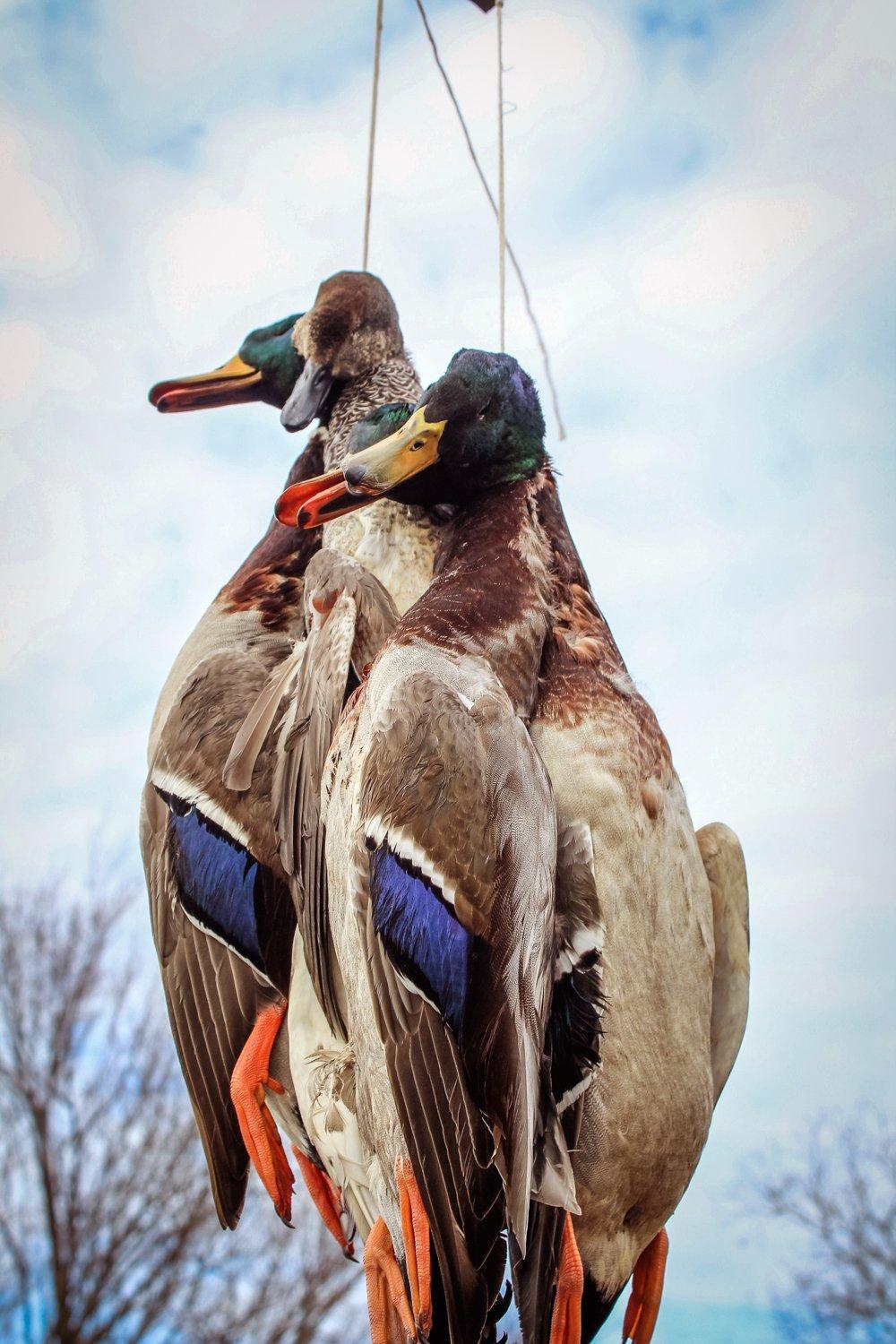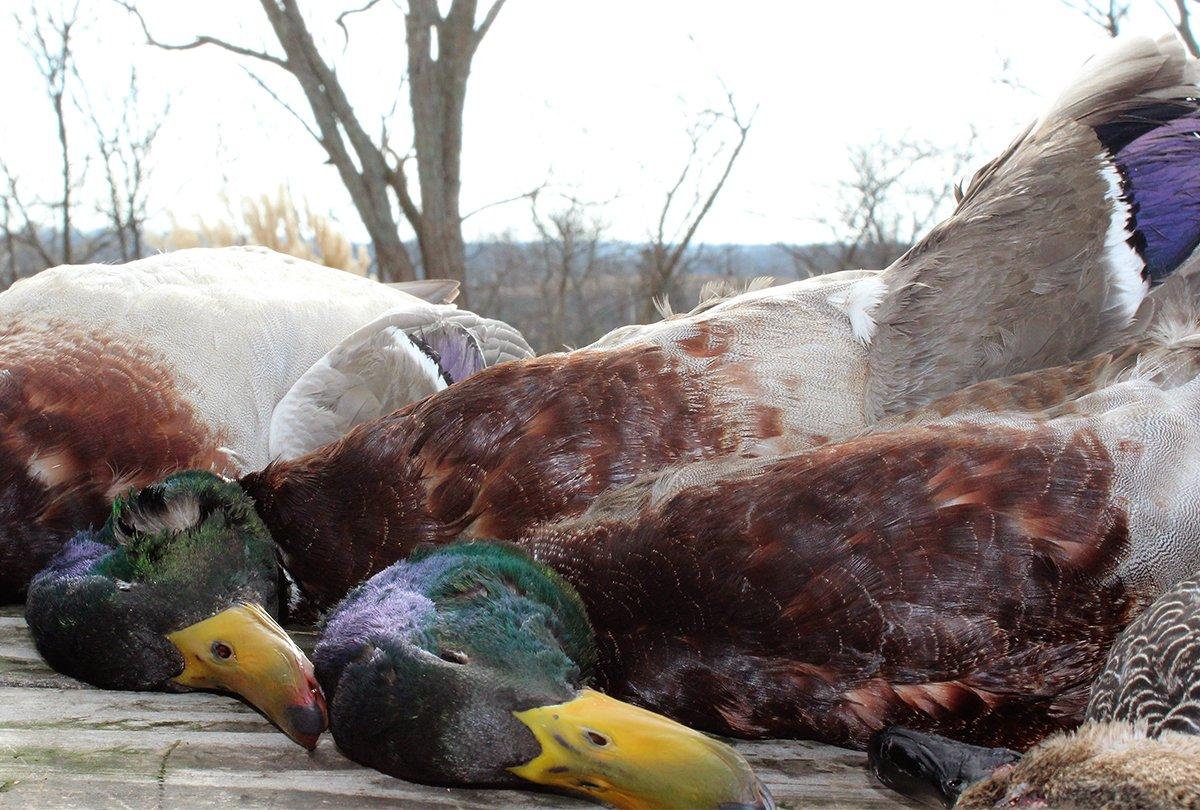Do you hang your ducks and geese to age before cleaning them?
Very often, the first thing duck and goose hunters do once the hunt is over is pluck or skin their birds. I used to as well. Then, a few years ago I started researching the practice of aging waterfowl and other game birds. It works.
Just like beef or venison, aging ducks and geese improves both the texture and the flavor of the meat. These days, the only birds I process right away are any that are obviously gut shot. Those get taken care of immediately after the hunt so that any material that might have been transferred from the intestines to the inner meat can be cleaned. All others get hung for a period of days.
How many days? It depends. The optimum aging temperature ranges from about 35 to around 50 degrees. Much cooler than 35, and the meat freezes, stopping the enzymes that are working to tenderize and flavor the meat. Once the temperature climbs above 50 degrees, the pathogens that can cause many food borne illnesses become active. If conditions are right, I give ducks between three and five days and hang big geese for up to 7.
How does it work? Just like with venison, the process works two ways. First, the moisture inside the meat begins to evaporate, concentrating the flavor into a more confined area. The second, and more important, effect of aging on the meat is the breakdown of fats, carbohydrates, and proteins into sugars and amino acids by naturally occurring enzymes in the meat. One resulting amino acid in particular, glutamate, gives the aged meat a rich, savory flavor.
Along with improving the flavor of the meat, these enzymes break down the connective tissue. This makes the meat more tender than it was when freshly killed. While this isn't a problem with younger birds, the texture of old ducks and geese is noticeably improved after aging.
What's the best way to age a bird? I like to leave the feathers and skin on. I simply make a loop from some butcher's twine, place it around the neck, and suspend the birds from a rafter in my unheated garage or barn. If there is no rain in the forecast, I even hang outside at times. I always suspend the birds head up for aging.
Another benefit of aging birds happens during plucking time. When properly ripened, the feathers loosen in the skin. This makes plucking much easier. In fact, if the ducks hang long enough, I often find that I don't even need to dip the carcass into hot water before plucking. To test, grab a few tail feathers and tug on them gently. If they slide out easily, go ahead and pluck the birds. If they still take a bit of a pull to remove, heat a pot of water to 165-175 degrees and swirl the birds around for about 30 seconds before plucking.
So let us know. Do you age your ducks and geese before preparing them for the table?








